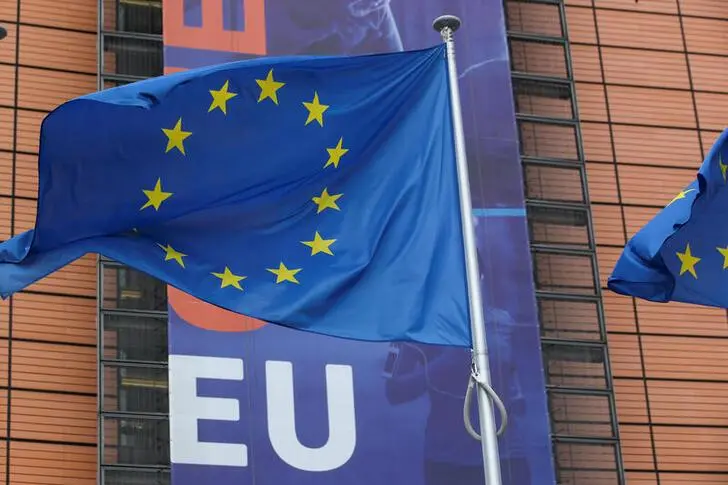PHOTO
The European Union and Singapore concluded a digital trade agreement on Thursday designed to ease cross-border data flows and shape global rules for data.
The agreement, supplementing an existing EU-Singapore free trade accord that entered force in 2019, sets rules governing e-signatures and consumer protection, places limits on spam and bars mandated access or transfer requirements for technology, notably source code, that countries such as China require.
It should also reduce costs for businesses, boosting services trade.
Singapore is already the EU's fifth largest partner in services trade and more than half of these services are delivered digitally, amounting to 43 billion euros ($47 billion)in 2022.
For the EU, the agreement reflects its aspiration to be a global standard-setter for digital trade, with a particular focus on the Asia-Pacific. It already has digital agreements as part of trade accords with Britain, Chile and New Zealand, has a deal on cross-border data flows with Japan, and is in negotiations with South Korea.
Digitally-delivered services trade globally has risen on average by 8.1% per year from 2005 to 2022, outpacing increases in trade of goods and other services, according to the World Trade Organization.
The EU is the world's largest exporter of services, nearly half of which are digital.
The agreement still needs to be ratified by Singapore and, in the EU, by national governments and the European Parliament.
($1 = 0.9219 euros)
(Reporting by Philip Blenkinsop Editing by Mark Potter)





















